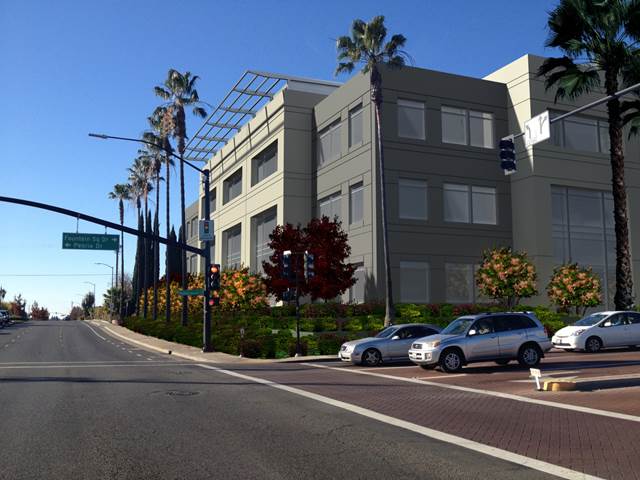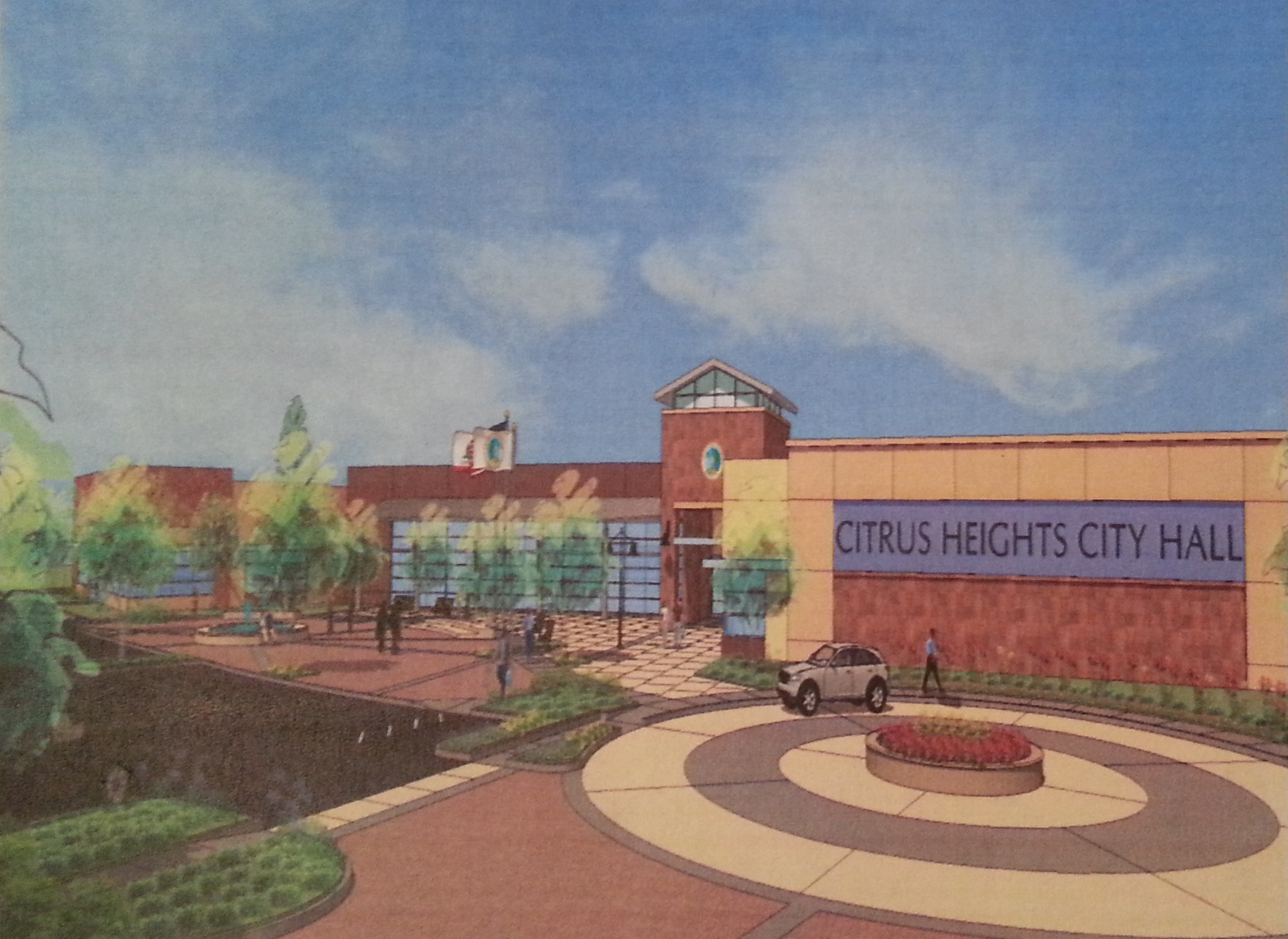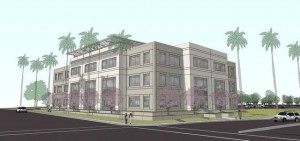A lawsuit was filed against the City of Citrus Heights last week by a group alleging “noncompliance” with the California Environmental Quality Act (CEQA) on a recently approved new city hall and three-story medical office building (MOB) project.
The lawsuit, initiated by the nonprofit group “Preserve Our Civic Center,” asks the Sacramento County Superior Court to declare the City’s approval of the new hall and MOB project to be “invalid and void,” and that the Environmental Impact Report (EIR) prepared for the project “fails to satisfy the requirements of CEQA.” It also asks the court to order a “new legally adequate” EIR for the project, and require suspension of all contracts related to construction on the project until alleged violations of CEQA are addressed.
The $53 million project was unanimously approved by the city council on March 26, authorizing the aging city hall to be torn down and replaced with a 68,000 square feet Dignity Health medical building. A new $22 million city hall would then be built next to the Post Office down the street on the 10.9-acre Stock Property, paid for in part by a 15-year lease agreement with Dignity Health.
In legal filings, Preserve Our Civic Center identifies itself as a group “composed of persons whose economic, personal, aesthetic, health, and property interests will be severely injured if the adoption of the Project is not set aside pending full compliance with CEQA and all other environmental laws.”
The lawsuit alleges “deficiencies” in the City’s several-hundred page EIR, including “an inadequate project description, and an inadequate analysis regarding impacts to transportation and circulation, air quality, biological resources, land use, and noise.” The lawsuit alleges that such deficiencies will result in “significant environmental impacts.”
The CEQA-required EIR is a detailed analysis of potential environmental effects for certain projects, with “significant” effects being required to be adequately mitigated, reducing the effect to “less than significant.” The Report must also include an analysis of alternatives to the project, assessing if other options may create less effect on the environment.
Citrus Heights resident Norman Hill, who heads up the group filing the lawsuit, said the EIR “seemed to be designed to understate the effects, so that the City would not have to deal with mitigation.”
[Read the final version of the EIR and traffic study here: http://www.citrusheights.net/836/Environmental-Impact-Report]
Citing the legal complaint filed by Hill’s group, Monica Alejandrez with the city manager’s office referred comments to City Attorney Ruthann Ziegler, who was unable to be reached by phone or email on Friday.
City council members were aware of the likelihood of a lawsuit prior to their vote to approve the final EIR and authorize the project to go forward, as Hill had threatened litigation previously.
“Mr. Hill, I’m sorry that you feel the way you feel,” Councilman Jeff Slowey told Hill during the March 26 council meeting. “But threats, they don’t bother me in the least bit. If you wanna go to court I say bring it on — but bring your checkbook.”
[Prior story: Council votes 5-0 for new city hall & MOB; lawsuit threatened]
Hill said the council “just blew off anything that called for a reduction of the impacts,” and should have done more to address issues like aesthetics, traffic, and glare, highlighting concern for neighbors who would see “this three-story monstrosity” from their homes and neighborhoods. He acknowledged the City made an improvement by switching the new hall location away from a previously proposed site on Antelope Road, but said it “unfortunately” seems that lawsuits are “what people have to do to be heard by this City.”
[Related: New City Hall Site Option Draws Support, While Medical Building Criticized]
Hill, a retired environmental attorney, said he looks forward to a CEQA-required settlement conference between his group and the City, hoping City officials will be “willing to talk.”
“Ideally we’d like to see the MOB back on the Stock Property, but I’m not sure how much success we’d have with that,” said Hill, who has also proposed an alternative two-story MOB design. “I think there may have to be some give-and-take between us and the City.”
*Editor’s note: this story will be updated with comments from the city attorney, if reached. For more context on this story, see: Council votes 5-0 for new city hall & MOB; lawsuit threatened
[follow text=”Get local news updates:”]




